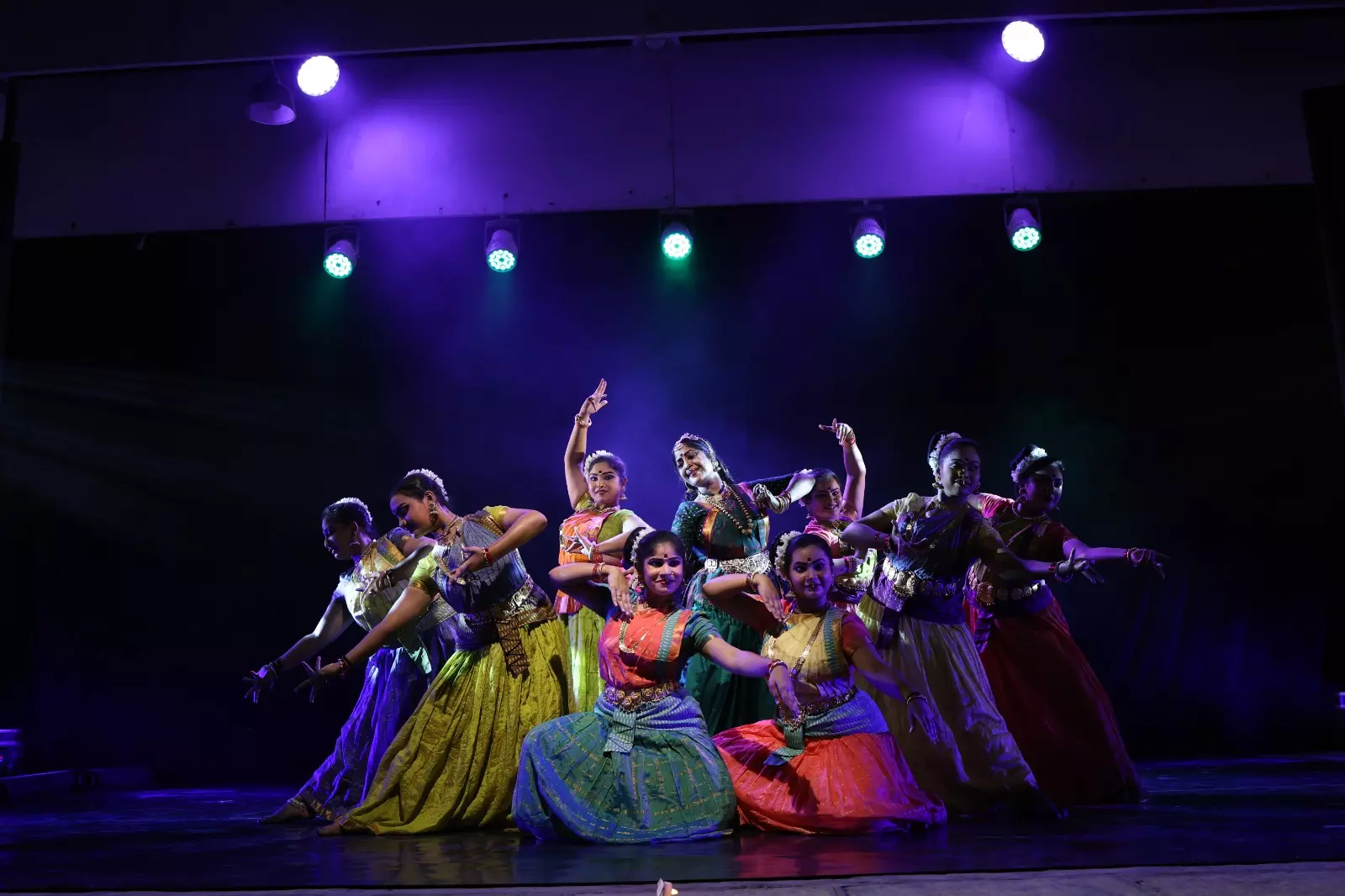Alekhya retells Ravana’s Mandodari’s dilemma

Prof. Alekhya Punjala, dancer, choreographer and educator, has revolutionised the world of classical dance. (Image: DC)
Hyderabad: Prof. Alekhya Punjala, dancer, choreographer and educator, has revolutionised the world of classical dance. With a career spanning decades, she has mesmerised audiences with her performances, choreography, and unwavering passion for preserving India's rich cultural heritage.
A revered teacher and mentor, Prof. Punjala has nurtured the talents of countless students, guiding them on a journey of self-discovery, artistic expression, and personal growth. Prof. Punjala's latest offering, 'Mandodari', was a resounding triumph, showcasing the artiste's mastery over the Kuchipudi form.
The 90-minute-long dance-drama, presented on the sixth day of Kalasagaram's annual festival, was a visually stunning production that transported the audience at the Keyes High School in Secunderabad to the realm of the Ramayana.
Prof. Punjala's portrayal of Mandodari, demon king Ravana's wife, was a nuanced and multifaceted exploration of the queen's inner world. Through her exceptional storytelling and choreography skills, Prof. Punjala brought to life the ancient epic's complex characters and moral dilemmas.
Mandodari’s life is a blend of devotion, wisdom, and femininity. Her story is an exploration of the human condition, as she grapples with the contradictions of her husband's nature. Her unwavering devotion to Ravana serves as a beacon of hope, illuminating the transformative power of love and loyalty.
Through the ages, Mandodari's legacy has inspired generations of women, as she embodies the ideals of a devoted wife, mother, and queen. Her life serves as a powerful reminder of the enduring power of femininity, love, and devotion.
The production's elaborate set design, theatrical performances, and vibrant costumes all contributed to a rich and immersive experience. Prof. Punjala's troupe of dancers performed with precision and flair, elevating the overall impact of the production.
What sets Prof. Punjala's 'Mandodari' apart was its thoughtful and empathetic portrayal of a complex female character. The queen becomes a deeply human and relatable figure, whose struggles and desires resonate powerfully with modern audiences.
The music, expertly composed and rendered, was an integral component of the visual feast. The haunting melodies and intricate rhythms perfectly complemented the dancers' movements, heightening the emotional impact of each scene. The use of traditional instruments, such as the veena and the mridangam, added an authentic touch to the production, grounding it firmly in the traditions of Kuchipudi.
( Source : Deccan Chronicle )
Next Story
